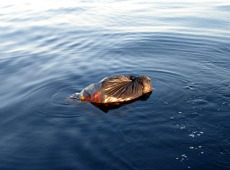The government has decided to delay implementation of new development projects financed out of the state budget due to shortfalls in revenue, Finance Minister Abdulla Jihad confirmed to Minivan News today.
Jihad said that the cabinet decided to postpone planned infrastructure projects that have not yet started in an attempt to ease cash flows rather than deducting a specific amount from the development budget.
“We are in the process of [drawing up a supplementary budget]. Hopefully by the end of the month we will have something,” he said.
The decision to suspend new projects was revealed by Housing Minister Dr Mohamed Muiz today following the signing of contracts to build harbours in four islands.
Speaking to press after the signing ceremony, Muiz said he was instructed by the finance ministry not to commence any further infrastructure projects included in the 2013 budget, such as harbour construction or land reclamation.
Muiz explained that government-funded projects in the pipeline will be pushed back until parliament passes bills to raise additional revenue.
The move follows parliament’s rejection last week of government-sponsored legislation to raise the airport service charge to US$30, which was among a raft of measures proposed by the Finance Ministry in the estimated 2013 budget to raise MVR 1.8 billion (US$116 million) in new income.
Other measures included hiking Tourism Goods and Services Tax (T-GST) to 15 percent from July 2013 onward, leasing 14 islands for resort development, introducing GST for telecom services as well as oil, and “selectively” reversing import duty reductions.
Following the narrow defeat of the airport service charge amendment bill in parliament, Jihad told local media that a “significant amount” would be lost from projected revenue as the additional income was anticipated in budget forecasts.
“If the amendments for the import duty are not passed, we will find it extremely difficult to manage the budgets of institutions. So it’s critical that the parliament expedites work on the bills and support them,” he was quoted as saying by newspaper Haveeru.
The bill proposed by the government to raise the airport service charge was defeated 28-27 despite the ruling coalition’s provisional majority in the 77-member house.
During the parliamentary debate last week, MPs of both the opposition Maldivian Democratic Party (MDP) and government-aligned Progressive Party of Maldives (PPM) – respectively majority and minority parties in parliament – accused President Dr Mohamed Waheed of using state funds to finance his presidential campaign.
Supplementary budget
Dr Waheed meanwhile told the people of Thulusdhoo in Kaafu Atoll yesterday (April 20) that there was no cause to worry about the budget or rumours of impending bankruptcy.
“The Maldivian economy is not really that bad,” he was quoted as saying by Haveeru.
President Waheed however conceded that “difficulties” had arisen due to spending beyond the country’s means in the recent past.
As a consequence of deficit spending financed by loans, Dr Waheed said the government had to spend an amount almost equal to the state’s wage bill on interest and loan repayments.
“We Maldivians are not indebted to anyone. We are proud people. We pay back what we borrow. We don’t have any outstanding payment, to any party,” Dr Waheed said in his speech, according to the President’s Office website.
He added that the finance ministry was preparing to submit a supplementary budget to parliament before the end of April, which would seek funds needed to provide services to the public without interruption.
Economic Development Minister Ahmed Mohamed – a senior member of the government-aligned Dhivehi Rayyithunge Party (DRP) – however told Haveeru last week that a supplementary budget would be of no use if parliament failed to approve the proposed revenue raising measures.
“Numbers written on paper will not increase funds. One or two billion rufiya can be added to the budget through the supplementary budget,” he explained. “But shouldn’t there be a way to get that three or four billion rufiya?”
The minister also referred to media reports suggesting that some government offices have exhausted their annual budgets after the first three months of the year.
Parliamentary approval
During the budget debate in December 2012, Majority Leader MP Ibrahim Mohamed Solih warned that the additional revenue projected in the budget was unlikely to materialise.
The MDP parliamentary group leader claimed that the import duty revision to raise tariffs on oil “will not be passed in this Majlis.”
Moreover, he said at the time, the MDP would not support increasing T-GST without consultation with the tourism industry.
Predicting that revenue in 2013 would reach “only MVR 11 billion at most,” Ibu warned that income would not be enough to meet recurrent expenditures on salaries and administrative costs.
Meanwhile, Minority Leader MP Abdulla Yameen, parliamentary group leader of the PPM, said at the time that the government’s objectives or policies could not be discerned from the proposed budget.
“These projects are very random or ad hoc. The government’s planning should be better than this,” he said.
While President Waheed had taken note of the high salaries paid by institutions such as the People’s Majlis as “a serious problem,” Yameen said he could not see “any kind of sign” of reducing recurrent expenditure or salaries and allowances for government employees.
The state’s wage bill amounts to 48 percent of recurrent expenditure, which accounts for 70 percent of government spending.
2013 budget
A public sector investment program (PSIP) of MVR 3.1 billion (US$201 million) was proposed within the 2013 budget.
This included MVR 1.5 billion (US$97 million) from the state budget, MVR 21 million (US$1.3 million) from domestic loans, MVR 1.2 billion (US$77 million) as foreign loans and MVR347.6 million (US$22.5 million) as free aid.
After parliament trimmed more than MVR 1 billion (US$64.8 million) from the MVR 16.9 billion (US$1 billion) budget submitted by the Finance Ministry, Jihad warned that funds allocated in the budget would not be enough to manage expenses and predicted that a supplementary budget would be needed before the end of the year.
Parliament’s Budget Review Committee approved MVR 1.6 billion (US$103.7 million) in cuts from recurrent expenditure and added MVR 389 million (US$25.2 million) for infrastructure projects.
The budget items that the committee reduced included; overtime pay (cut 50 percent), travel expenses (cut 50 percent), purchases for office use (cut 30 percent), office expenditure (cut 35 percent), purchases for service provision (cut 30 percent), training costs (cut 30 percent), construction, maintenance and repair work (cut 50 percent) and purchase of assets (cut 35 percent).
The committee also instructed the Finance Ministry to reduce an additional MVR 605.7 million (US$39.2 million) from office budgets.
In December 2012, the Finance Ministry ordered offices to cancel all overseas trips, such as for study tours and training, and to seek approval from the ministry for all official trips that were not completely funded by foreign parties; cancel all repair work for the rest of December; and cancel purchases of capital items that were not included in the public sector investment programme (PSIP).
In the circular, the Finance Ministry noted that 15 percent had previously been deducted from office budgets to reduce the fiscal deficit “as a result of income being lower than estimated in the 2012 budget passed by parliament.”
However, since government spending necessary to provide essential services to the public could not be reduced, “the state’s expenditure has to be further controlled as additional measures are needed to reduce the state’s budget deficit,” the circular stated.
In July 2012, the Finance Ministry instructed all government offices to reduce their budgets by 15 percent, with only 14 of 35 offices complying by the given deadline.
“Some offices will face difficulties. But we don’t have a choice,” Jihad told local media at the time.
Likes (0)Dislikes
(0)Dislikes (0)
(0) 

 with Minivan News earlier this year about how minors were identified and viewed in the eyes of Maldivian law.
with Minivan News earlier this year about how minors were identified and viewed in the eyes of Maldivian law.